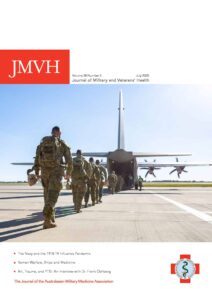Editorial – COVID-19: THE MIDDLE GAME
Editorial COVID-19: THE MIDDLE GAME In early January 2020, we all started to hear about an outbreak of acute respiratory illness in Wuhan City, China. Within weeks, we were preparing for a pandemic, which first reached Australia in late January 2020. By March, we were all dealing with the first wave of this new disease… Read more »




 Download the whole edition here.
Download the whole edition here.


